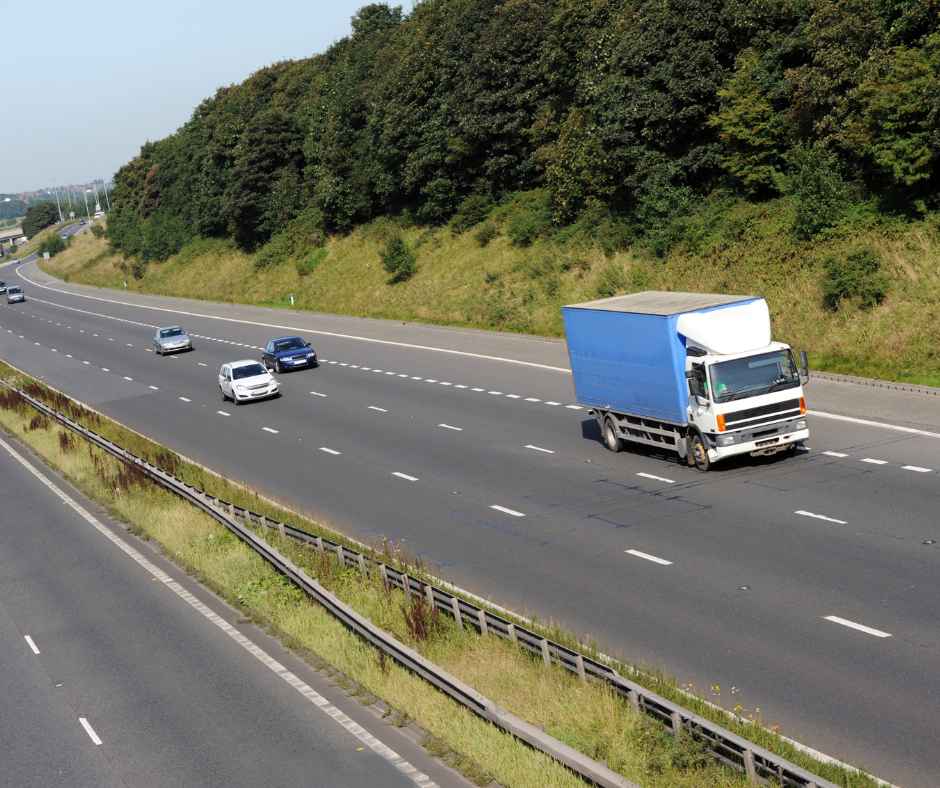Driver welfare: Are you fit to drive?
 In his monthly column, Simon Turner sheds light on the far-reaching implications of driver welfare beyond organisational care, emphasising its direct influence on road safety.
In his monthly column, Simon Turner sheds light on the far-reaching implications of driver welfare beyond organisational care, emphasising its direct influence on road safety.
Driver welfare goes beyond the pastoral care good organisations offer to employees – it has a direct effect on road safety.
Driver welfare is a broad term covering both the pastoral duties employers may undertake to support their workforce, and the very specific issues which organisations must manage as part of their health and safety responsibilities.
Most employers like to believe they are supportive of employees’ health and well-being. However, for those who drive professionally there are several physical and mental factors which have a direct impact upon their road safety. These issues tend to intersect, eg drivers who are chronically tired will tend towards carbs-based foods, lower mood, and other potential health problems.
Marcus de Guingand, Managing Director of Third Pillar of Health, says: “Organisations who go beyond basic controls for fatigue, such as drivers’ hours regulations, and proactively address the topic are likely to see significant benefits. Those regulations have some merit but they are a very poor control against the myriad of issues that could be causing driver fatigue.”
Read more on the SHP website.
Dozens fall ill after Sunderland triathlon, health chiefs confirm
 At least 57 people fell ill with diarrhoea and vomiting after a World Triathlon Championship Series event in Sunderland, health chiefs confirmed.
At least 57 people fell ill with diarrhoea and vomiting after a World Triathlon Championship Series event in Sunderland, health chiefs confirmed.
Tests are being conducted to establish possible causes of the outbreak.
Following news of illness among competitors, concerns were raised about water quality results from 26 July which showed high E.coli levels.
British Triathlon said the water tested was outside the swim area for the event held on 29 July.
The swim leg of the World Triathlon Series event took place at Roker Beach.
Alongside the elite races, about 2,000 people took part in a series of combined swimming, cycling and running events across the weekend.
The UK Health Security Agency said it had been notified of 57 cases of diarrhoea and vomiting involving people who took part and was working with British Triathlon “to encourage anyone who participated and has or had symptoms after the event to contact the organisers”.
For more on the incident, visit the BBC website.
HSE Working Minds Campaign to target HGV drivers
 The Health and Safety Executive (HSE) has warned that more needs to be done to protect Britain’s truckers from work-related stress.
The Health and Safety Executive (HSE) has warned that more needs to be done to protect Britain’s truckers from work-related stress.
The HSE’s Working Minds campaign will now target HGV drivers – and their bosses – to promote good mental health whilst at work. The Road Haulage Association has joins as a campaign partner to support the move.
Long hours away from home, demanding delivery times and limited access to toilets and showers are common causes of stress for drivers. When safe to do so, drivers can text “BeAMate” for free confidential health support 24/7 – a service provided by Working Minds campaign partner, Mates in Mind.
Elizabeth Goodwill, from the HSE’s Stress and Mental Health Policy Team said: “HGV drivers keep the country and our economy moving. It’s therefore vital employers meet their legal duty to ensure risks of stress and mental ill health are factored into risk assessments.
Learn more about the campaign on the HSM website.
£1.2million fine for Network Rail after grandad died doing maintenance work
 Network Rail has been fined £1.2million following the death of a grandad who was crushed while carrying out maintenance work.
Network Rail has been fined £1.2million following the death of a grandad who was crushed while carrying out maintenance work.
Long-serving employee Kevin Mauger was crushed by a railway track weighing six tons while working at a rail depot in Hampshire.
The 53-year-old from Eastleigh, had five children and eight grandchildren. His wife Rachael says her husband was the core of their family and that his death has left ‘a hole that can never be filled’.
He had been carrying out maintenance on Network Rail’s rail production line at the Long Welded Rail Depot off Dutton Lane in Eastleigh on 30 November 2020.
As he was cleaning the inside of a butt-welding machine – a machine that welds two sections of rail tracks together. The machine’s conveyor system was on the wrong setting and that meant a section of rail track entered the machine while Kevin was inside. He was crushed and died at the scene.
A Health and Safety Executive (HSE) investigation found Network Rail failed to ensure there was a safe system of work while carrying out maintenance on its rail production line. Network Rail also failed to provide an adequate risk assessment for this type of maintenance.
Visit the HSE website to read more.
To keep up to date with the latest health & safety news and advice, follow us on social media:
